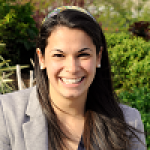Technology is rapidly evolving. This evolution is occurring because people are sharing ideas, resources and themselves online 24/7.
So what does this mean for our education? Education has long been seen as a vertical un-adaptive to change. Fifty years ago schools had individual desks, a blackboard in the front of the room and a teacher who administered lessons and testing in accordance to their specific state. Today, schools have individual desks, Smartboards instead of blackboards and a teacher who administers lessons and testing in accordance to their specific state. What has changed?
Although some schools are slower than others to adapt technology changes, that doesn’t mean others are not jumping in feet first and utilizing the open source way to change education as we know it. We’re in for a lot of changes once we break though our bureaucratic system (which we put in place), row seating, the 8-4 schedule and standardized testing. The truth is, learning is ongoing and collaborative and classrooms should cater to this.
Here’s a wish list:
- Classrooms will be paperless
- Classrooms will cater to more individualized instruction based on a student’s passions
- Communication will vastly improve
- New learning spaces will pop up – that’s right, no more individual desks
And here’s how this will happen because of an open source mentality:
Classrooms will be paperless:
Students will no longer trudge through their local value office store with a huge cart full of notebooks, folders, paper, pens and pencils. Beside the positive effects this will have on our environment, it will also mean students will have electronic folders and notebooks, and instead of pens and pencils they’ll have a keyboard and mouse, or even a tablet and their index finger. Students and teachers will be able use Wikis to share lesson plans, homework help, great pieces of example work and the best part, it will all be free!
Classrooms will cater to more individualized instruction based on a student’s passions:
No one person learns the same as another, but lucky for us we have technology that will help with differentiated learning. Just last year, the NYC school system invested a ton of money on technology-based learning programs that worked to shift learning from a whole-group mentality to personalized-collaborative mentality. Aside from that, students will have more of a chance to discover their individual passions and collaborate with others about those passions. Bianca Hewes is an English teacher who has created an assignment where her students shape their digital footprint by creating and writing personal blogs that are focused on them, “Passion-Driven Blogging.” This will also let them connect with others in the digital realm who are interested in their interests and will prompt collaboration of ideas – think sharing between social media platforms like Facebook and Twitter and also conversation-based commenting on the actual posts.
Communication will vastly improve:
Parents, students and teachers will all be able to collaborate and loop in ideas and feedback. Imagine if student’s report cards were not printed out grades on a piece of paper, but a Google doc that teachers were able to share with parents and the student and feedback was able to be shared constantly throughout the year. Not to mention, parents would be able to fully understand what their child was working on in school by just the click of a button and their teacher would be a resource a click of a button away.
New learning spaces will pop up – that’s right, no more individual desks
With the growth of mobile devices like the iPhone and iPad, students and teachers will essentially be able to learn together anytime and anywhere. Classrooms in general will be laid out topromote collaborative learning – rather than a static computer lab, students will have the freedom of wireless and flexible workspace that will promote interaction and comfort that will encourage creativity and support peer-to-peer learning. Such an environment will promote social sharing using Wikis, Google docs, blogs, Facebook, Flickr, Youtube and Twitter.
Classrooms of the future will be equipped with technology that supports the open source way – openness, transparency, collaboration and diversity. We may need to wait more than 10 years, but hopefully not!
Sarah Fudin currently works in community relations for the University of Southern California's Master of Arts in Teaching program, which provides aspiring teachers the opportunity to earn a Masters degree in Education and teaching credential online. Outside of work Sarah enjoys running, reading and Pinkberry frozen yogurt.







22 Comments